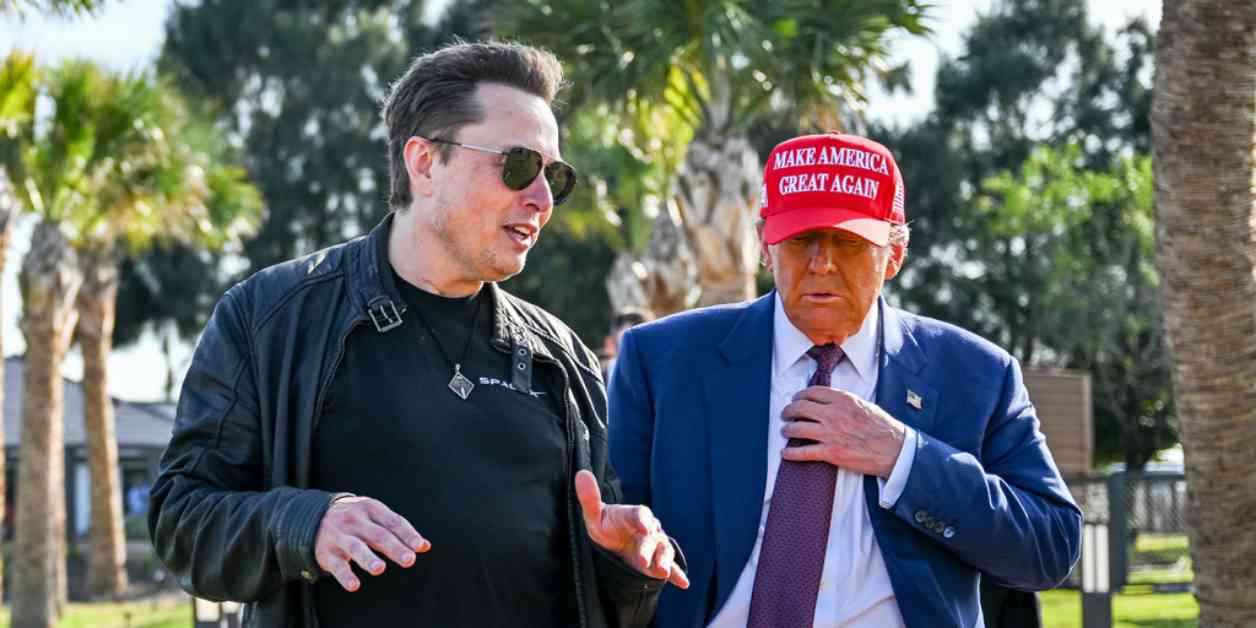President Trump’s administration has taken a sharp turn away from its once-heralded populist platform, now clashing with the wealthiest members of society, including billionaire White House adviser Elon Musk. The recent showdown between Trump’s Cabinet members and Musk highlights a growing tension over firings, budget cuts, and the responsibility for these decisions. The confrontation, which unfolded behind closed doors, revealed a disconnect between Musk’s public appearances and private discussions with senators and Cabinet secretaries.
During a heated Cabinet meeting, Secretary of State Marco Rubio and Transportation Secretary Sean Duffy criticized Musk for terminations that seemed to disregard the impact on their respective agencies. This interaction led to Republican senators securing a commitment from Musk to allow Congress to vote on budget cuts rather than enforcing them unilaterally. However, Musk’s comments during this meeting contradicted his previous statements, potentially placing blame on Cabinet secretaries for the proposed cuts.
As the situation escalated, President Trump intervened by asserting that his Senate-confirmed secretaries would have the final say over personnel decisions in their departments, reducing Musk’s influence in the process. Despite these developments, both Trump and White House officials downplayed the significance of the conflict, emphasizing teamwork and efficiency in government operations. The incident, though seemingly resolved, underscored a broader ideological struggle between populist proponents and wealthy advisors within Trump’s inner circle.
The Populists Versus The Plutocrats
The clash between Trump’s populist supporters and prominent billionaires like Musk sheds light on the larger battle between those advocating for middle- and low-income workers and the ultra-wealthy elite. The tension between old-guard Trump populists and seasoned politicians against Musk and other affluent advisors reveals a complex power struggle within the administration. Former White House official Steve Bannon expressed optimism about the confrontation, suggesting that Musk’s approach to cost-cutting and staffing decisions was facing resistance.
Throughout his presidency, Trump has faced criticism for aligning himself with billionaires while championing a populist agenda. Notably, his inauguration featured prominent tech figures and business tycoons, signaling his willingness to engage with the so-called “broligarchs.” The President’s policies, from immigration reform to economic strategies, have created rifts between his wealthy advisors and his core voter base. The administration’s handling of issues like H-1B visas, debanking regulations, and citizenship pathways has further exacerbated tensions among various factions within Trump’s coalition.
As the political landscape evolves, the intersection of elite interests and grassroots movements continues to shape public perception of the administration’s priorities. The recent executive order establishing a strategic bitcoin reserve, with prominent figures like Musk and tech advisor David Sacks in attendance, underscores the influence of billionaires on policy decisions. However, the disconnect between these high-profile advisors and everyday Americans, as highlighted by Trump’s cavalier attitude toward potential economic disruptions, raises questions about the administration’s commitment to serving the broader population.
Looking Ahead: Economic Impacts and Voter Sentiment
While Trump’s interactions with billionaires like Musk may offer glimpses into the inner workings of his administration, the ultimate test lies in how these decisions affect everyday Americans. The administration’s focus on streamlining government operations and reducing bureaucratic influence may resonate with some supporters but alienate others who rely on public services and employment opportunities. As the economy grapples with inflation and policy shifts, voters will assess Trump’s leadership based on tangible outcomes that impact their daily lives.
With midterm elections on the horizon, the economic landscape will be a critical factor in shaping public opinion and electoral outcomes. Recent polling data suggests that addressing inflation remains a top concern for the majority of Americans, highlighting the need for effective economic policies. Trump’s ability to deliver on his promises, particularly in addressing inflation and economic stability, will be closely scrutinized by voters and lawmakers alike. The upcoming elections will serve as a barometer of public sentiment and a referendum on the administration’s handling of key economic issues.
In conclusion, the clash between Trump’s populist platform and the influence of billionaires like Elon Musk underscores the complexities of governance in a divided political landscape. As the administration navigates competing interests and public expectations, the dynamics between populists, plutocrats, and policymakers will continue to shape the trajectory of the country’s economic and political future. The interactions between wealth, power, and public welfare remain at the forefront of national discourse, reflecting the broader challenges and opportunities facing the nation in the months and years ahead.


